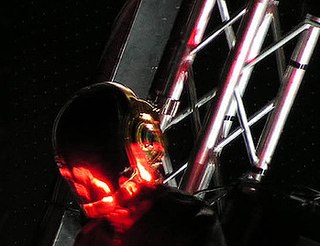A Quote by Kim Stanley
Humans were still not only the cheapest robots around, but also, for many tasks, the only robots that could do the job. They were self-reproducing robots too. They showed up and worked generation after generation; give them 3000 calories a day and a few amenities, a little time off, and a strong jolt of fear, and you could work them at almost anything. Give them some ameliorative drugs and you had a working class, reified and coglike.
Related Quotes
There are lots of examples of routine, middle-skilled jobs that involve relatively structured tasks, and those are the jobs that are being eliminated the fastest. Those kinds of jobs are easier for our friends in the artificial intelligence community to design robots to handle them. They could be software robots; they could be physical robots.
I think sometime we will go to Mars and I think we'll explore it with humans sometime, but I think it's really wise to do all the robotic exploration ahead of time and learn as much as possible. Once we have learned as much as possible with the robots, then that's the time to send people, and let them then continue the research that the robots have started.



































